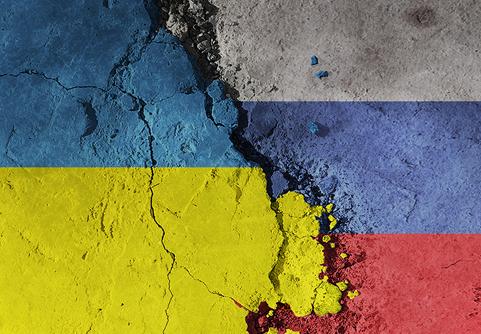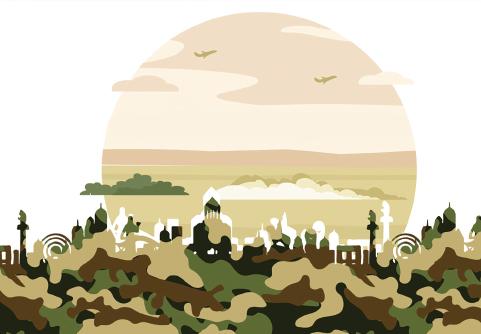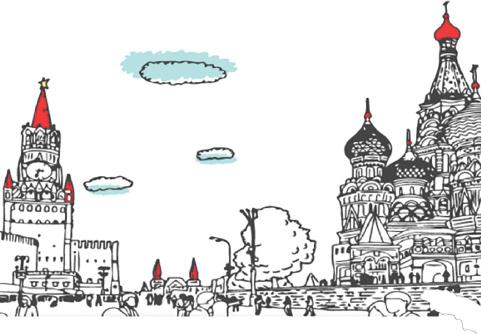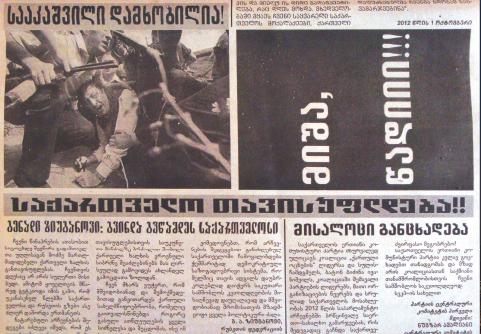Author : Giorgi Kharebava
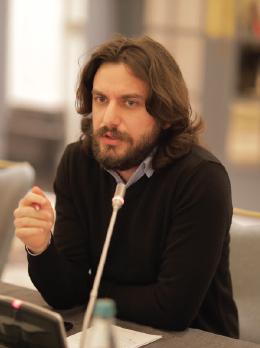
7,000 kilometers away from Georgia, between the South China Sea, the Philippine Sea and the East China Sea, lies a small island separated from mainland China by the Taiwan Strait. The island is officially considered an integral part of China, but for more than 70 years it has not been controlled by Beijing. In 1949, the civil war in mainland China ended in the victory of the Communists and the defeated side retreated to Taiwan. Thus, the People's Republic of China was established in the mainland of the country under the rule of the Communist Party, while the nationalists hiding in Taiwan proclaimed the Republic of China there. For years, the international community recognized the Taiwanese government as the legitimate government of China but, following the stabilization of relations between the United States and the People's Republic of China in the 1970s, the United Nations General Assembly recognized Communist China as the sole and legitimate representative of China.
Today, amid the rise of the People's Republic of China and its growing global ambitions, Taiwan is facing serious security challenges. Unlike Georgia, Taipei's adversary is a rising China with global ambitions, whose economy is second only to the US and whose military capabilities are growing the most. Given Russia's military collapse in Ukraine, it is safe to say that the Chinese People's Liberation Army, its navy and air force are number two in the world and are growing stronger by the day. Taiwan's situation is complicated by its status as officially it is a territory of China, whose statehood is not recognised even by its closest allies, which creates additional barriers to building and improving state institutions, economy, defense and security. Nevertheless, today's unrecognized Taiwan is much better protected from a rising China than the sovereign state of Georgia, whose security is threatened by a weakened and declining Russia. Thus, studying the example of Taiwan could be interesting and useful for our country.
There are two major factors upon which the security of modern-day Taiwan is built. First is Taipei's own investment in defense and security, which allows it to have a strong and high-tech armed forces, and second is that Taiwan has been able to successfully integrate into the global economy. Its chip production industry is crucial to the world economy, making this small island of only 23 million people the world leader in semiconductor manufacturing.
At first glance, Taiwan is a small island with a population that is 61 times smaller than that of China (in comparison, the population of Russia is 40 times larger than that of Georgia, putting Taiwan into a worse position in this respect than Georgia), but this factor has never been a reason for Taiwan to panic. Unrecognized Taipei has managed to transform its territory into a highly developed economy over the years of correctly implemented reforms. According to the International Monetary Fund's 2021 data, Taiwan's nominal gross domestic product is nearly $800 billion, and that's with no natural resources. Nominal GDP per capita is over $33,000. For reference, in the case of Georgia, if GDP per capita were the same, our economy would be worth more than $120 billion, and at least $2.5 billion could be spent on defense, if the 2 per cent NATO standard was met, which by a rough estimate is 8 times more than the current budget. By comparison, Taiwan's defense budget is almost $17 billion, making it a force to be reckoned with by any adversary.
Taiwan has successfully demonstrated that even small actors can ensure a strong defense. According to Globalfirepower, it ranks 21st in the world in terms of military strength, 125th in terms of area and 57th by population. Properly implemented reform has enabled Taiwan to build a highly developed and prosperous economy. The protection of its accumulated wealth makes the small island a strong and lethal adversary even for Mainland China. If the rulers of the country start taking care of the national interest instead of their narrow partisan interests, similar results can be achieved in Georgia. Especially since, unlike Taiwan, Georgia is an internationally recognized state, and Tbilisi is in a much better position than Taipei for establishing international trade relations and conducting foreign policy.
As we have already mentioned, strong military forces are not the only guarantee of Taiwan's security. Just as important as the military component is the dependence of the world economy on Taiwan. Taiwan is not a large economy by international economic standards, economies of such countries as Switzerland, the Netherlands, Saudi Arabia, Indonesia, Mexico, Spain, and Iran are much larger than that of Taiwan, but despite this, Taiwan still manages to remain a critical actor in the global economy, and it is supported in this by its own microchip industry.
Taiwan's leadership in microchip manufacturing was established in 1987 when TSMC, the Taiwan Semiconductor Manufacturing Company, was founded. As of 2020, this company alone controls 54% of the global chip market. American technology companies such as Apple, Google, Nvidia and Qualcomm are 90% dependent on chips made in Taiwan. Taiwan's TSMC, along with South Korea's Samsung, is the only company producing the most advanced 5-nanometer chips, and 90% of such advanced chips are produced by the TSMC. In total, the global chip market is 63 percent dependent on Taiwanese companies, providing the small island with a kind of 'silicon shield' to defend itself against Beijing.
Small, unrecognized and under constant threat of invasion, Taiwan has managed to become a true leader in the global semiconductor industry. To put it simply, without Taiwan, the world's leading countries and companies, and even China itself, would not be able to produce smartphones, laptops, cars and many other types of modern technology, including military equipment. Withdrawal of Taiwan from the world economy could cause a very acute global crisis, which is not in the interests of any major power.
It is therefore in the vital interest of all major powers to stop any attack on Taiwan. No small country today can practically match this achievement done by Taiwan and gain such great influence on the world economy. With the right reforms and strategic thinking, though, Georgia could increase its relevance for international partners. This function could well be fulfilled by the deep-sea port of Anaklia, which unfortunately was not built because of Georgian Dream. Tbilisi's influence was also increased by the export of Caspian Sea basin energy resources to Europe through Georgia. Against the backdrop of Russia's weakening and Europe's rejection of Russian hydrocarbons, the possibility of effectively using Georgia's transit function is becoming increasingly realistic. Unfortunately, the Georgian government has not been active in this direction either.
The example of Taiwan shows us that to defend against an adversary many times your size, at least two things are essential: 1. Investing in defense and security and 2. Increasing your international weight, so that an attack on you could cause problems for larger countries, in which case security guarantees are always increasing. This is a lesson Georgia should learn.

